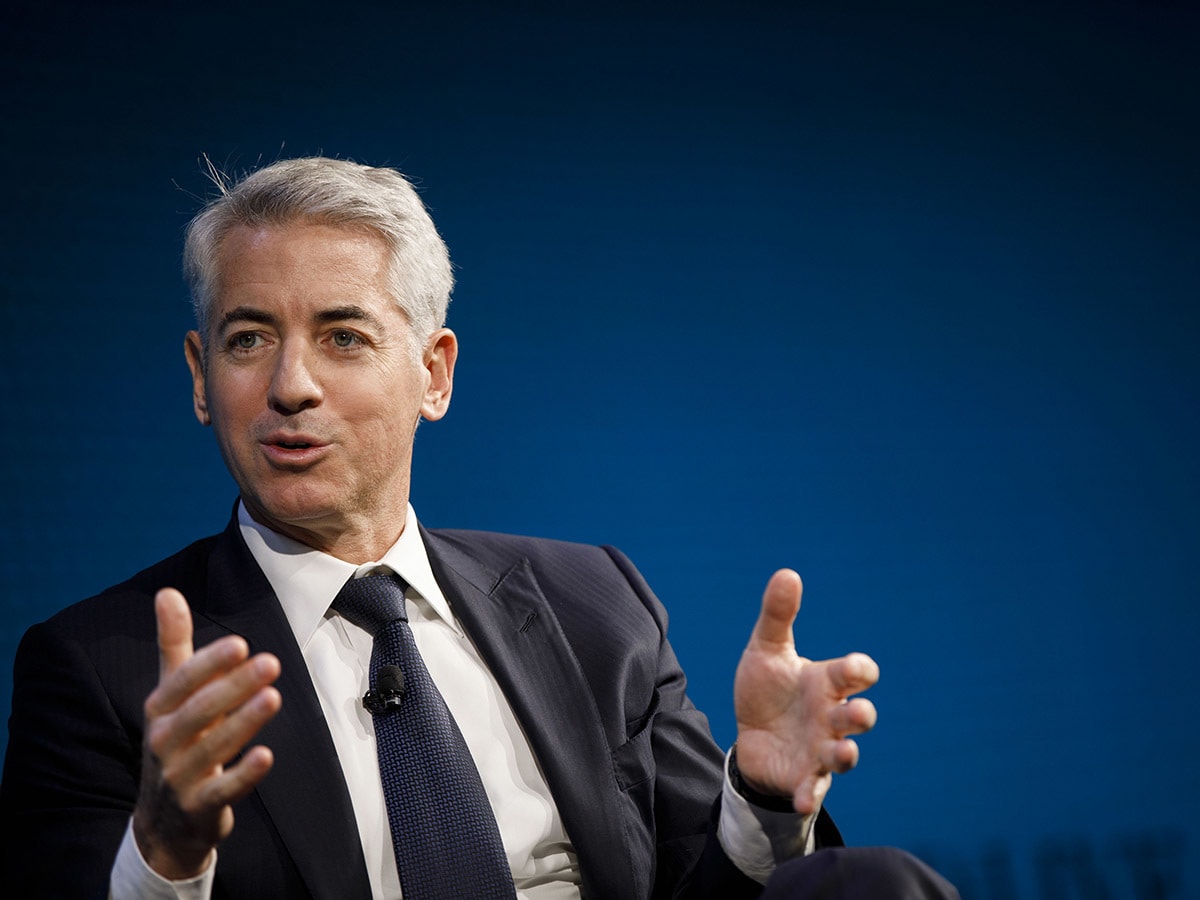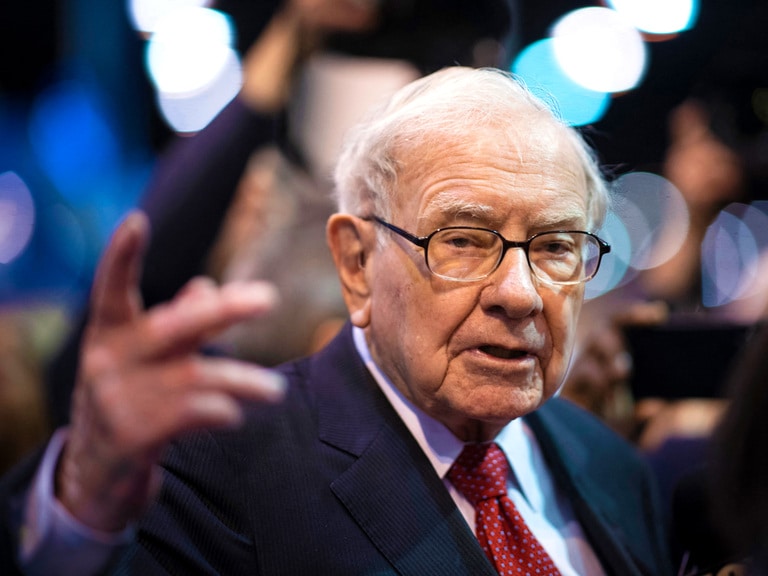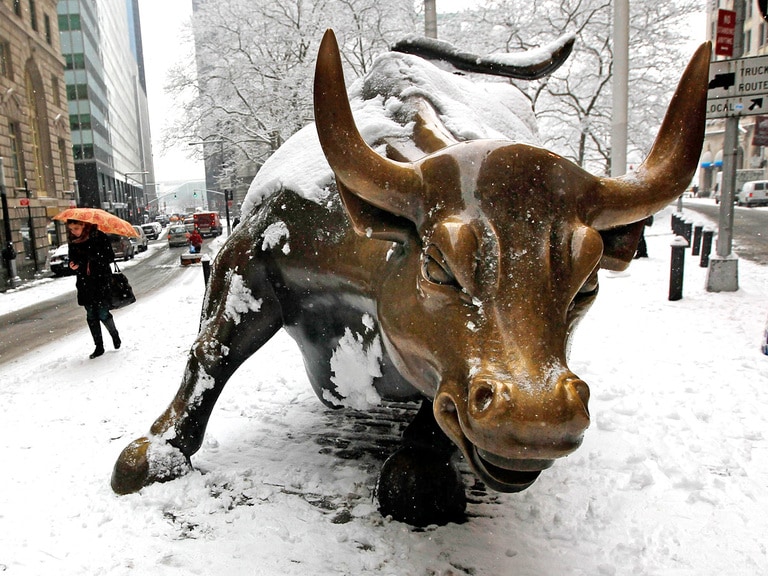There was a palpable sense of shock when hedge fund manager Bill Ackman turned his back on the man he called his mentor — Warren Buffett.
Surprisingly, the news that the CEO of Pershing Square Capital Management [PSHD] had dumped his $1bn stake in Warren Buffett’s Berkshire Hathaway [BRK] on 27 May sent both funds’ share prices up 2% and 3% respectively.
During Pershing Square’s Q1 earnings call, Bill Ackman told shareholders that the reason for dropping his stake was to free up capital to invest in new opportunities.
“We have $10bn of capital to invest; we can be much more nimble and so our view was generally we should take advantage of that nimbleness, preserve some extra liquidity in the event that prices get more attractive again,” he said.
“We have $10bn of capital to invest; we can be much more nimble and so our view was generally we should take advantage of that nimbleness, preserve some extra liquidity in the event that prices get more attractive again” - Bill Ackman
Severed ties
Over the years, Bill Ackman has declared himself so influenced by the Oracle of Omaha that Forbes Magazine once pictured him with the cover headline “Baby Buffett” back in 2015.
In August 2019, he paid Buffett the ultimate compliment of investing around $686m — around 11% of his own fund — to acquire 3.5 million Berkshire Hathaway B shares. After a turbulent few years, it was as if Ackman needed a familiar, reliable safe haven.
$686million
Amount Ackman invested in Berkshire Hathaway in August 2019
But, as with any returning child who quickly feels constricted under his parents’ roof, Berkshire has proved a little too safe and cosy for Ackman.
“It’s a very different environment from when we made the investment in Berkshire a year ago,” Pershing Square partner Ryan Israel said during the Q1 earnings call. He noted that the firm still considered Berkshire Hathaway to be a strong investment over the long term, but that “the current environment means there may be more than typical opportunities for [Pershing Square Capital Management] to see very high-returning investments”.
A controversial career
In a CNBC interview in March, he announced, “hell is coming” and said he’d relocate his family out of New York to escape the impact of coronavirus. Ackman then watched as his quiet £27m bet on a market plunge netted him a 10,000% return of $2.6bn.
In a letter to Pershing Square Capital Management investors, Ackman explained that the hedges made “were in the form of purchases of credit protection on various global investment grade and high yield credit indices”, adding that risk of purchase was minimal due to “near-all-time tights levels of credit spreads” at the time of purchase.
$2.6billion
Amount Bill Ackman made on a £27m bet in March
As the 11-year bull market crashed to a halt, these credit protection trades, the Financial Times notes, helped protect Pershing Square Capital Management’s $6.5bn portfolio. The net proceeds of these hedges were then “redeployed substantially”, Ackman explained, and added to firm’s investments in Agilent, Berkshire Hathaway, Hilton, Lowe’s and Restaurants brands, while the proceeds also allowed for “new investments, all at deeply discounted prices”.
But then Bill Ackman’s first rule of activist investing, according to Bloomberg, has always been to make a bold call that no-one else believes in. He started early too — within weeks of graduating from Harvard in 1992 with an MBA, he’d founded investment firm Gotham Partners.
Just three years later, Ackman convinced insurance and real estate firm Leucadia National (now Jefferies Financial Group) to partner him in a bid to buy New York’s Rockefeller Center. The bid fell through, but it marked out Ackman as one to watch. He’s been worth watching ever since.
“Throughout my career, my most successful investments have been controversial,” he told Bloomberg. He was not wrong. After all, this is a man responsible for some of the best, and some of the worst, calls in hedge fund history.
“ Throughout my career, my most successful investments have been controversial” - Bill Ackman
In 2002, for example, Ackman used credit derivatives to place a short bet against municipal bond giant MBIA [MBI], believing it would default and told the company he planned to issue a report questioning its integrity and AAA-status.
When then-CEO Jay Brown tried to dissuade him, Ackman called his bluff. According to Christine Richard’s Confidence Game, Ackman recalls Brown saying “you’re a young guy, early in your career. You should think long and hard before sharing the report”.
He published the report and pursued MBIA for the next four years. His suspicions gained some traction until the sub-prime mortgage crisis wiped out the bond issuer’s shares — Ackman made $1.1bn, according to the New York Times.
In 2004 he founded Pershing Square Capital Management, where he began to make his mark investing in companies, suggesting management “improvements” to raise the stock price, and then exiting with a profit. "What we do for a living,” Ackman told Bloomberg, “buying stakes in companies and working to make them more valuable, more efficient, more effective, I think it's great for the shareholders, I think it's great for the employees. I think I can do some good with that, and it's also very profitable."
The model has had some notable successes — Pershing Square Capital Management’s first major investment persuaded US diner chain Wendy’s [WEN] to offshoot its popular Tim Hortons restaurant chain as a separate company. This raised its share price long enough for Ackman to exit in profit. “From Ackman’s initiation in Wendy’s in mid-April 2005 to liquidation, Wendy’s stock appreciated from $38 to about $71,” Maneet Ahuja writes in The Alpha Masters.
Next, Ackman’s $60m saved US mail business General Growth Properties [GGP] from bankruptcy while netting Ackman’s company a profit of 110 to 115 times the original investment. Pershing’s hands-on approach to Canadian Pacific Railway [CP], including parachuting in a new CEO, increased its share price fivefold in five years.
But Bill Ackman’s boldness means his failures are as spectacular as his successes. He lost a reported $1bn on a dogged continued short of health supplement firm Herbalife, insistent it was a pyramid scheme with an intrinsic value of zero. He also had to apologised to investors after losing what Matt Levine, writing in Bloomberg, calculated to be an enormous $4.6bn over his blind faith in Valeant Pharmaceuticals.
A clashing with firms
This rollercoaster ride means life with Bill Ackman is never less than colourful. This was neatly illustrated when a long-standing feud with Carl Icahn began as a realty deal in 2013, famously spilled over into a bitter slanging match on CNBC, in which the Icahn Enterprises founder called Ackman a “liar” and a “crybaby” over his position on Herbalife.
So maybe, after a few tumultuous years Ackman did briefly seek some calm with Buffett’s fund. Indeed, as recently as April, Ackman was reported to have used some of his COVID-19 profits to boost Pershing Square Capital Management’s stakes in Berkshire Hathaway.
But that was then and this is now. Ackman clearly currently believes he will do better without the man who guided his career — and he may be right. Whatever happens, it’ll be an eventful ride.
Disclaimer Past performance is not a reliable indicator of future results.
CMC Markets is an execution-only service provider. The material (whether or not it states any opinions) is for general information purposes only, and does not take into account your personal circumstances or objectives. Nothing in this material is (or should be considered to be) financial, investment or other advice on which reliance should be placed. No opinion given in the material constitutes a recommendation by CMC Markets or the author that any particular investment, security, transaction or investment strategy is suitable for any specific person.
The material has not been prepared in accordance with legal requirements designed to promote the independence of investment research. Although we are not specifically prevented from dealing before providing this material, we do not seek to take advantage of the material prior to its dissemination.
CMC Markets does not endorse or offer opinion on the trading strategies used by the author. Their trading strategies do not guarantee any return and CMC Markets shall not be held responsible for any loss that you may incur, either directly or indirectly, arising from any investment based on any information contained herein.
*Tax treatment depends on individual circumstances and can change or may differ in a jurisdiction other than the UK.
Continue reading for FREE
- Includes free newsletter updates, unsubscribe anytime. Privacy policy





